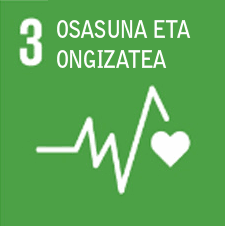VACCINES, how do they work?
- Taldearen izena
- TALAIAK
- Taldekideak
-
- PAULE ZUMARRAGA NUÑEZ
- ASIER MARTINEZ URIARTE
- UNAI ALBERDI IGARTU
- Irakaslea / tutorea
- ZORIONE FUNDAZURI URKIDI
- Ikastetxea
- ELORRIO BHI
- Maila
- dbh4
- Herria
- ELORRIO
- Probintzia
- Bizkaia
- Hizkuntza
- English
- Lanaren eremua
-
- Osasuna
- Biologia / Geologia
- Proiektu mota
- Ikerketa proiektua
- Proiektuaren txostena
-
 Deskargatu
— 712 KB
Deskargatu
— 712 KB
Ikertzaileen balorazioak
Jorge Ortega Calvo
Farmacologia/Neurociencia
Facultad de Farmacia/ Facultad de Medicina y Enfermería
UPV/EHU
Hello team!
First of all, I would like to thank you for your interest in explaining how vaccines work. In the last year, we have not stopped hearing about vaccines everywhere and yet there are still many people who still do not know about them. Due to this lack of knowledge, fears about vaccination arise. Therefore, projects such as yours are not only of great interest, they are not only interesting but also needed. Therefore, my sincere congratulations!
Although I am not involved in vaccine development, I do research in biomedicine and I know this kind of work well. I think you have followed an appropriate and valid methodology. The work is done in a rigorous way. I would like to give you a couple of suggestions:
1- I suppose that the data about the knowledge of the different pharmaceutical companies by the people surveyed is related to the date on which it was done. It is important to state in the methods when it was done (I see from the bibliography that it was around March).
2-There are many people who wonder why the SARS-COV-2 vaccine has been developed so quickly. This is used to mistrust them. If you have the opportunity to argue the reasons why this is, fortunately, the case, you would do an important job. (1) The technology for mRNA delivery had already been studied for several years and all that was needed was to identify the mRNA of the virus and apply everything that was already being studied. (2) The richest and most advanced research countries have invested more money than ever before to make this possible. (3) Efficacy studies in humans (clinical trials) have developed very quickly because there is a global pandemic (thousands of people are infected every day). Remember that to know if a vaccine is effective, the vaccine is administered to a large group of people and another group (for comparison) is given a placebo (nothing that is effective). Then you have to wait to see which group is more protected. Therefore, if few or none of the vaccinated people have been infected and the people in the placebo group are infected, it is concluded that the vaccine has worked.
On the other hand, congratulations also for presenting the work in English.
___
Jose Angel Martinez Gonzalez
Centro de Fisica de Materiales
UPV/EHU
¡Enhorabuena Paule, Unai y Asier!
La idea que habéis elegido para trabajar me ha parecido muy interesante, aunque yo me dedico a la investigación en polímeros. En cualquier caso, vuestro proyecto es tan interesante que si decidís continuar con él me interesaría ver cómo lo hacéis. Por cierto, ¡la explicación que dais en el vídeo está muy bien!
En cuanto al proyecto en sí, habéis elegido unas preguntas muy claras y habéis presentado las respuestas separadas por grupos, que es algo muy habitual en ciencia.
Para mejorar os propondría que la descripción de que es y cómo funciona una vacuna funciona este en la introducción y en la discusión comentéis los resultados que habéis obtenido y que actividades podríais hacer para que las personas entiendan mejor cómo funcionan las vacunas.
____
Gabriel Rodriguez San Juan
Psicología (Investigación Básica sobre Aprendizaje y Atención)
Facultad de Psicología
UPV/EHU
¡Hola grupo Talaiak! ¡Enhorabuena por el proyecto que habéis presentado! Vuestro estudio ofrece una fotografía muy interesante sobre cómo es el nivel de conocimiento y la actitud sobre las vacunas en vuestro medio social cercano (compañeros estudiantes, profesores, progenitores). Me puedo imaginar el desafío y esfuerzo que ha supuesto diseñar el cuestionario, ordenar e interpretar todos los resultados y realizar estas presentaciones tan complejas en la forma y contenido. ¡Muy buen trabajo! Desde mi campo de conocimiento (la psicología), se me ocurre una forma de complementar vuestro estupendo proyecto en el futuro. Podríais introducir en la encuesta preguntas que indagasen sobre posibles rasgos compartidos por las personas que muestran estos miedos y/o actitudes sobre las vacunas. Indagar, por ejemplo, sobre si estas personas hacen caso a fuentes o medios de información concretos, si muestran miedo o desconfianza sobre este tema en particular o se trata de una tendencia más general a sentir miedo por lo desconocido, o por su salud… Si se identifica alguno de estos rasgos, se podría dirigir de manera más eficaz y precisa vuestra campaña de información veraz. ¡Os animo a que sigáis manteniendo este espíritu científico y este tesón en el futuro!

 Deskargatu
Deskargatu
